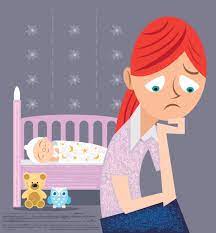UNDERSTANDANDING POSTPARTUM DEPRESSION

During pregnancy, one of the ways your body adjusts to its task of growing a viable baby is by altering its biochemistry and significantly increasing the levels of hormones that are normally found in your body, specifically progesterone and oestrogen. The end of a pregnancy, whether through childbirth, miscarriage or termination triggers a rapid drop in these various hormones, with the majority of women returning to pre-pregnancy level within3 days. This rapid change in biochemistry can impact your mood, with some woman experiencing feelings of sadness, tearfulness as well as experiencing fatigue and disruption in appetite and sleep. These feelings usually pass within a few weeks, however some women might find that these feelings persist and intensify, signaling that they may be suffering from post-partum depression Symptoms of postpartum depression are similar to those of a major depressive episode and can include a pervasive feeling of sadness or loss of interest in things that were previously enjoyed. Additionally, you might experience a change in appetite, either eating less or more that you usually would. Sleep and energy levels can be disrupted, and you might find yourself having excessive thoughts of guilt or worthlessness. You might find it difficult to bond with or form a relationship with your baby or relate to them on an emotional level. You may also find yourself having thoughts of harming yourself or your baby. These symptoms often cause significant distress and disruption in your ability to relate to others and daily functioning. As with most psychiatric disorders, the onset of postpartum depression can be triggered by environmental factors as well as biological factors, with poor familial support, financial difficulties, stress and relationship issues increasing your risk of developing postpartum depression. In addition to this, what makes diagnosing postpartum depression difficult is that the process of pregnancy, childbirth and adding a new baby to your life typically causes a disruption in sleep, appetite, energy levels and daily functioning. As a result, many women mistake the onset of postpartum symptoms as them not being able to cope with having anew baby, thereby reinforcing feelings of guilt and worthlessness. The pressures of motherhood and constant need to appear in control are often societally reinforced, making it harder to admit that you are not coping and seek treatment. Treatment for postpartum depression can include medical intervention, including being prescribed an antidepressant to help regulate your biochemistry as well as therapeutic intervention